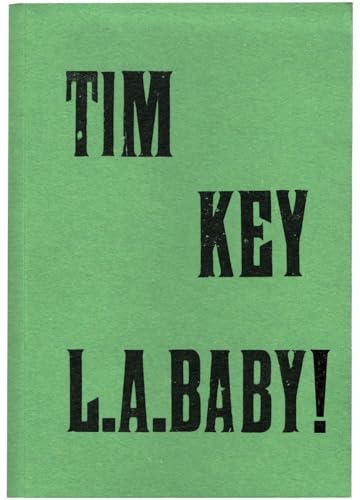Exclusive: Tim Key on Hollywood humour, Partridges and pigeon suits — and his new book L.A. Baby!
Plus! The ten key items Tim Key can’t live without...

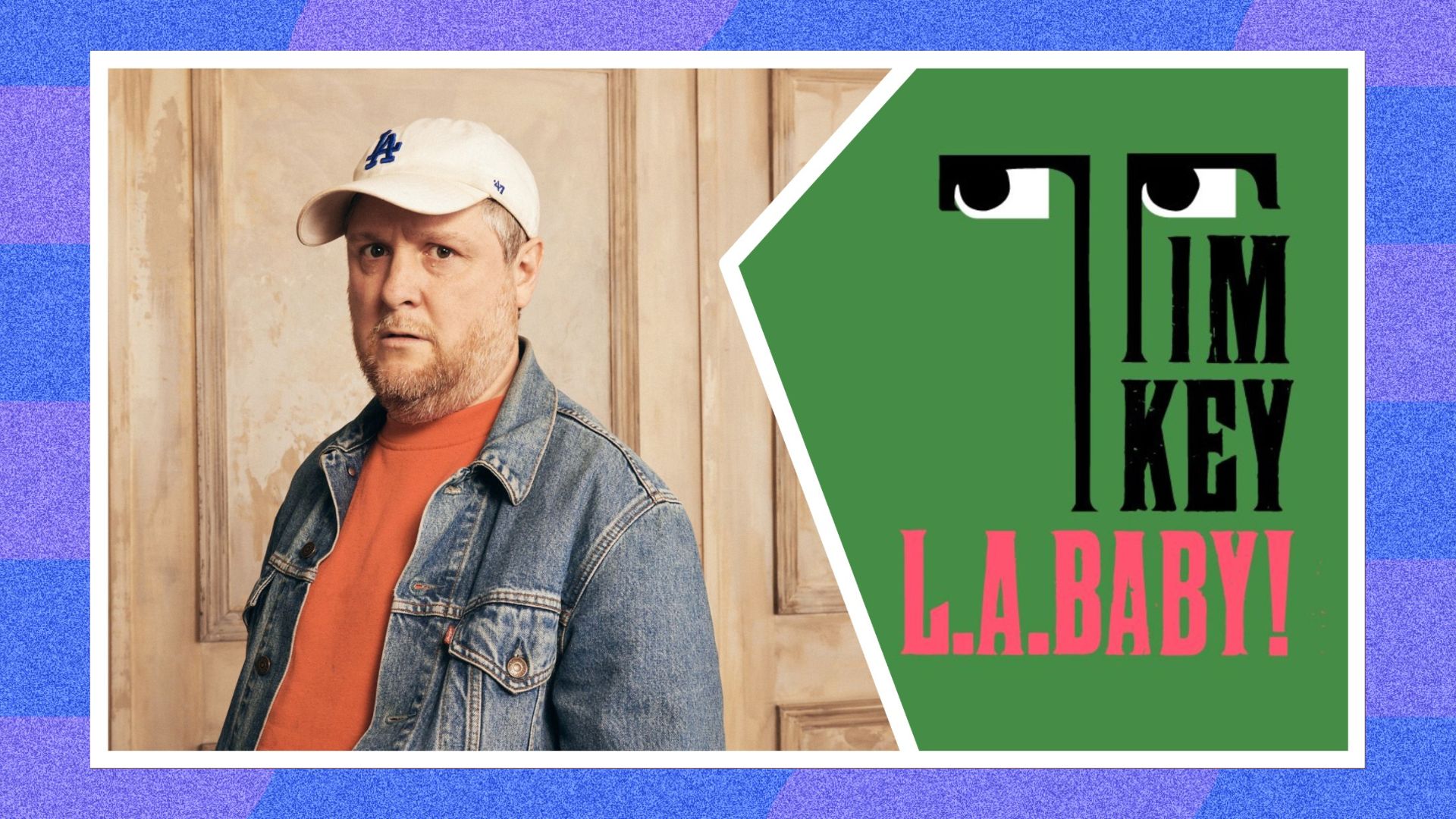
Get exclusive shortlists, celebrity interviews and the best deals on the products you care about, straight to your inbox.
You are now subscribed
Your newsletter sign-up was successful
Tim Key is on the cusp of becoming that rarest of things — a British comedian who breaks through in Hollywood.
That’s if he can finish signing the mountain of books piled up in his agent’s office first.
“The trick is to not add loads of words,” he says — fair, given the rest of the ones printed in it are already from his own hand. In front of Tim sits 1,000 copies of his new book, L.A, Baby!, which sees his pandemonious poet alter-ego take on the recent challenges of real-Tim’s actual life — a stint filming a prestigious new sitcom in Tinsel Town.
As you’d expect, it’s hilarious — bite-sized chunks of lunacy, self-aggrandizing and self-effacing in equal measure, as the lines between Tim’s real-world experience and the exaggerated ramblings of his comedy shadow increasingly merge.
And there’s no slowing down — his film The Ballad of Wallis Island is proving a slow-burn hit, there’s more Alan Partridge on the way, a new Edinburgh show cooking and, of course, a semi-sequel to the US Office that is poised to make Tim Key a household name on both sides of the Atlantic.
But first, 500 more signatures, and a sit down chat with Shortlist…
Shortlist: Hello Tim! We’re here to talk a little bit about your excellent new book, L.A. Baby!. Bit more of an international jet-setting vibe with this one than we've seen previously…?
Get exclusive shortlists, celebrity interviews and the best deals on the products you care about, straight to your inbox.
Tim Key: Ha, yeah, true. I guess it's the fish out of water tale, moving to LA, and then that kind of feeling of, well, it wasn’t plain sailing, trying to manage a new life, the dislocation of being in a new city.
SL: Have you moved to L.A.? Is that part of your actual life now?
Tim Key: No, I went there to film last September, and was there for three months. The first three weeks were quite discombobulating. And I turned to the old poetry just to kind of stay sane. So I'd be doing some filming and then trying to work out my way around LA, getting used to the new city. But then in the evenings, going to bars and starting to write stuff about it. That always is a good settler for me, that I can kind of use that as a little crutch while I'd find my feet, and then it kind of got out of hand and became a book.
SL: Is the L.A. project [Tim has been cast in ‘The Paper’ a new spin-off of the US The Office starring Domhnall Gleeson] something you can talk about?
Tim Key: It’s now filmed, but I haven't seen it, so there's a limit to what I can say about it. But it was, you know — it's fun. It was kind of... it was enjoyable, just it takes some time when you go to a new place to kind of, you know, work out exactly how to live your new life.
SL: Where were you living? Was it basically what we see from the book?
Tim Key: Yeah — so the book, some of it is real, some of it is not real. There's no kind of dispelling that in interviews because that's part of the book, you just read it and go, ‘I don't know what's real here’. A lot of it is! So where I was living, I described that. I kind of went up into the hills and, you know, found a really nice AirBnb, near a reservoir, and got into a sort of new system, a new way of life. I was running around the reservoir, and then having a Japanese lager out on the roof terrace, doing a little bit of writing, and then picked up in the morning and off to work again.
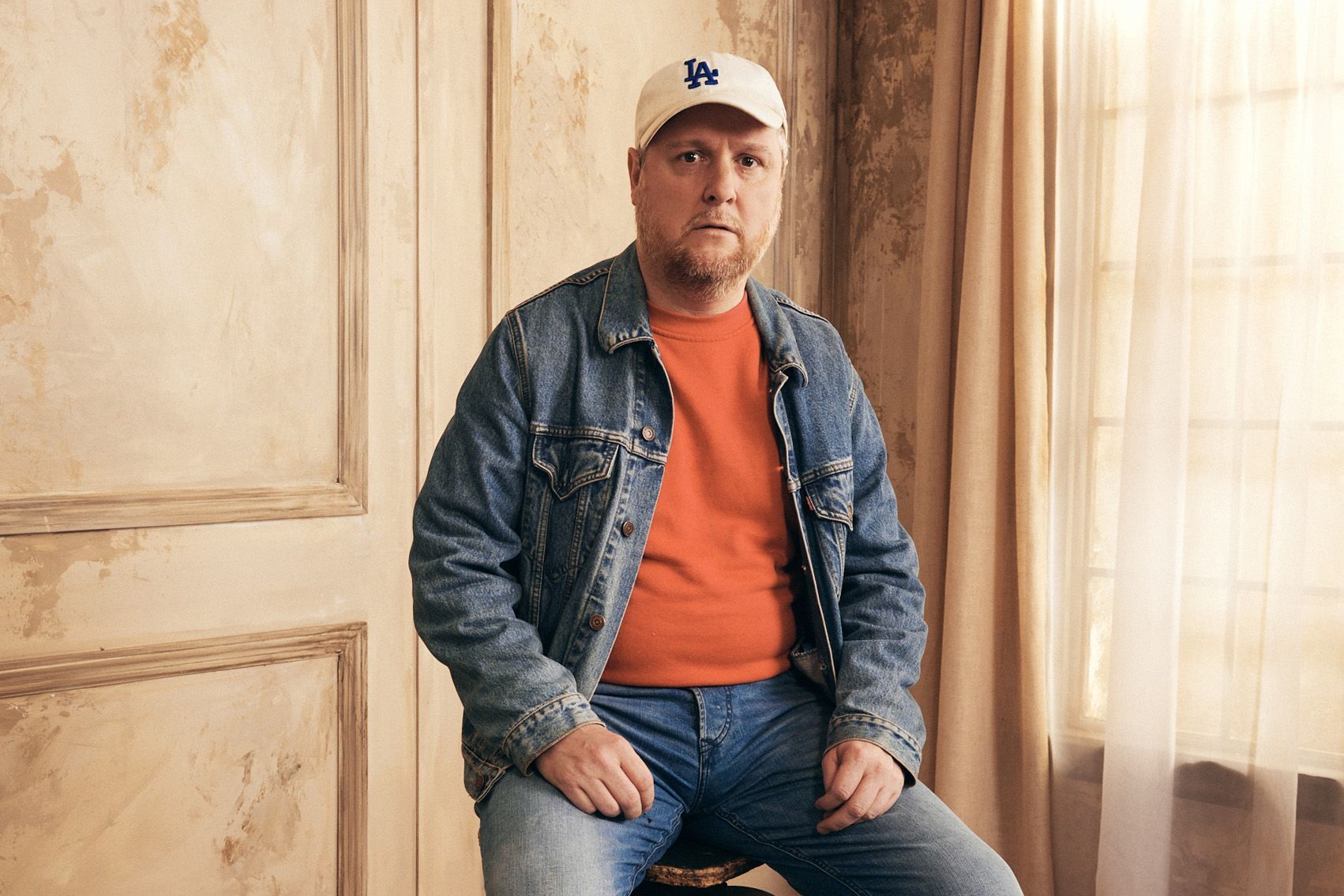
SL: Hopefully not shitting your pants, as suggested in the book…?
Tim Key: That would definitely be the dream, yep that was featured in one of the poems. Yeah, again, fine line between reality and make believe! You tell me!
SL: So, how's Hollywood treated you? How does it feel compared to working in British TV and film?
Tim Key: It's different. I don't know, because we just made this film [The Ballad of Wallis Island], so I've been promoting the film, and watched the film a lot. I guess the main difference is, with the film, you're just completely and utterly hooked into the film. With that one in particular it was our film — me and Tom [Basden] wrote the film, and Griff [James Griffiths] directed it. So you have this kind of real, complete love of the film. It’s your everything, really. It's your world when you're doing it.
Whereas this one is like, more like a job — you go in, you get picked up, you go to work. It's other people and it’s their passion, they're the people who drive the love of the project. You go in and you try and do your best to make it work.
With our film, it's a different thing — you don't ever stop thinking about it, and you're responsible for everything about it. You're responsible for the film, the tone, all of that, but then also for other people to go to work. That all rests with you, really.
SL: Would you say there's a big divide between British and American humor? As a comic who's working in it, what's your opinion of that?
Tim Key: No, I don't think so. The bigger distinction is between stuff that I'm making myself, that I've written, or being in someone else's. All of the stuff that you made yourself, you have to stand by it, you have to love it. There's loads of American stuff that I love and loads of English stuff that I love. But also there's tonnes that no matter where it’s from, American or English or any other country, not everything is going to be to your taste. So I don't think it's cut down international lines. It's just what floats your boat, really.
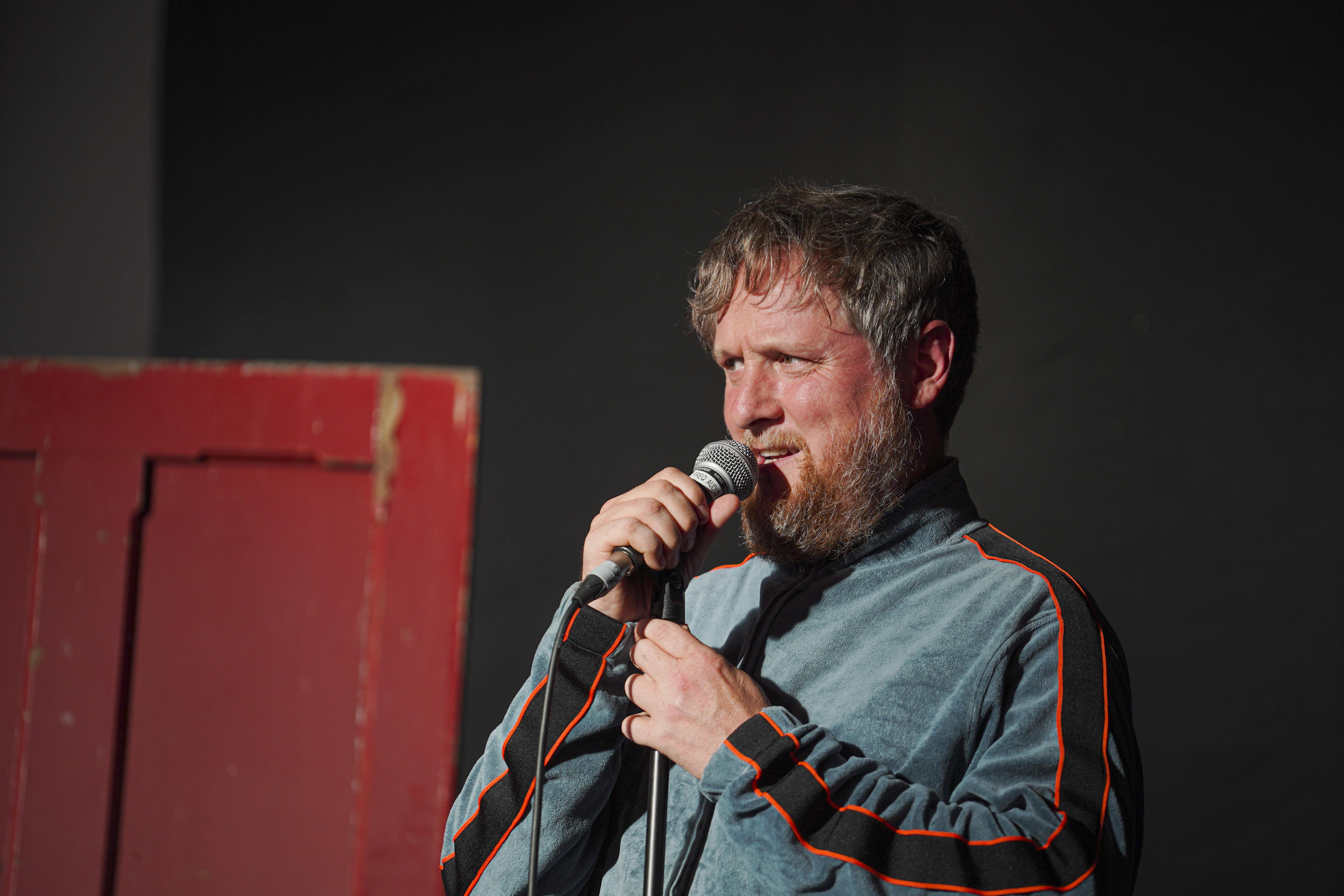
SL: We loved seeing you in Mickey 17 — we remember seeing the trailer and being like, ‘...is that Tim Key?’ How was that, to be featured in a big sci fi film? It's not something we've seen you do before.
Tim Key: Yeah, it felt a bit incongruous to me when I watched it! But oh it was great. Me, and a lot of my friends, have got careers that are kind of quite idiosyncratic in a way. So have stuff like Wallis Island where you work for years, and eventually you find yourself filming it. But then you also have something where director Bong [Joon Ho] gets in touch and says, ‘Would you like to play a pigeon?’ That's a really fun, distracting part of your career, because you can just sort of go, ‘obviously, yes, that'll be fantastic’, and then just spend five days in that environment.
It's very interesting watching an enormous film being made. It's very nice working with director Bong, he is fantastic. It’s the sort of thing which doesn't happen that often — maybe every two or three years, something like that happens where you go, ‘Oh, that's extremely fun.’ You don’t have to go through the long drawn out decision making with your agent, you just go, ‘that's 100% a yes’.
SL: So how was the pigeon suit?
Tim Key: The Pigeon suit was a handful. I never got to the bottom of why I was wearing it. When you read a script, you're looking for any clue as to how long a time commitment they might be. With that, it just said ‘pigeon man’, then you find yourself for the fourth time at the studios with another costume fitting, and gradually, the pigeon has kind of been formed around you — compared to other actors who aren't dressed as a pigeon would have not had to go to the studio four times…
SL: How's your approach differ when you're performing a scripted role as opposed to a role you’ve created yourself or performing your own stand up? Do you have a preference?
Ten key items Tim Key can’t live without
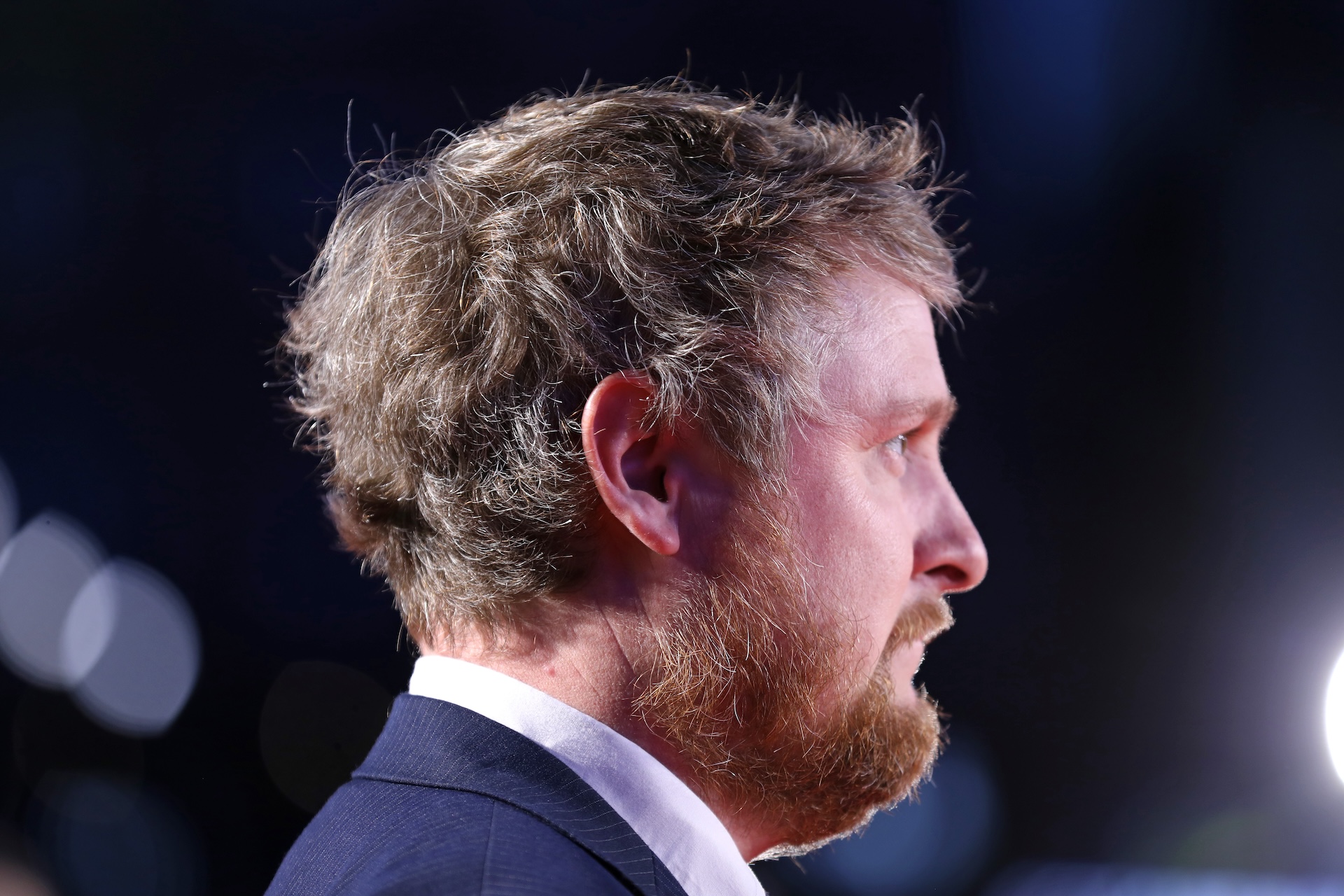
- Metal beetle to prise my shoes off/keep my front door open.
- Greek shell for cashew nuts.
- Bottle opener that plays Chinese National Anthem when it removes bottle caps.
- My Paperblanks notebooks.
- Tradio Japanese pen.
- Fluorescent lime green headband.
- Record player.
- Heavy duty sellotape dispenser.
- Pheasant incubator used as coffee table.
- House of Games dartboard.
‘Best pheasant incubator’ gift guide coming to a Shortlist page near you soon…
Tim Key: They're very different. It's usually the one that you kind of haven't done for a while, that you've yearned to do. I finished my live show, and then just sort of packed that away a couple of years ago, and then did more sort of writing and stage. But it is funny. I think some people do just get attracted back into it, like a moth to a flame, where you can't resist. I develop a lot of my stuff at [North London comedy club] The Bill Murray. You start to think ‘I'm quite into the idea of walking along the canal to the Bill Murray and just doing a new hour’ and seeing what, if anything, I've got.
So I kind of feel I'm condemned to continue to do that. It's an interesting journey. At the start. It's very exciting because you haven't read the stuff before or you haven't performed the stuff before. The audience has no idea what you're about to do. Then it's challenging to hammer it into shape. And then in the final stages, you have a show and you’re just trying to stay alive in it and just perform it as well as you can every night. And then it ends. It’s a very different discipline to something where you go on set, and after six days, you're finished. Stand-up is definitely more demanding, emotionally, because you're judged on it. It's you saying ,’Well, this is where I am at this precise moment’. Whereas there's all sorts of other factors when you're on camera, you might not have written it. There's no knowing how close to the heart of that project you are, whereas a live show is plainly obvious to everyone. This is this person's show. This is what he thinks is funny.
SL: We've seen you a few times at the Bill Murray, and you've had us crying with laughter. There was a time we saw you recently, and there was a line in one of your poems about sitting and wearing your favorite ‘eating t-shirt’. We felt very…
Tim Key: … seen! Ha!
SL: Obviously, poetry is a big part of your stand up and, of course, your books. Where was the genesis of that idea to draw the two together? Is poetry something you’ve always been interested in?
Tim Key: This is, like, about 20 years ago. I got on the underground and forgot my book to read, and I had a little notepad and I had a pen. I don't know why I had these things, but I just wrote, then, a poem, then I wrote three or four more and got my destination, and then on the way home, wrote another five on a small notepad. And then the next day, back on public transport, and wrote another five and basically filled up that book. Never told anyone I was doing that, and never read any out.
From six months before having an act that I had aborted that was terrible, now I had a fully formed act immediately, which became my act for the next 20 years.
Tim Key
Maybe about six months later, I had the chance to perform them, and literally just read them out. Before that I'd tried to do stand-up and it had gone very badly, and I'd kind of aborted that project. I was out. But then a friend of mine wanted to do a stand-up night. And so we all chipped in. And then he asked me if I would do some stand-up. I said, ‘That's not happening’, but I said I'd read out some poems.
So I had this little notepad, and the gig was in his lounge. It was called Live In Green’s Lounge. I climbed through the window of his lounge, and I was now wearing a suit. I had a can of lager. I had Soviet lounge music playing, and I had my poems. And so from six months before having an act that I had aborted and abandoned that was terrible, now I had a fully formed act immediately, which became my act for the next 20 years.
The poems were a huge part of that. They're kind of fundamental to it, and they allow me to, you know, talk around them. There's a lot of stuff I do that's kind of more similar to stand-up, I suppose. But then I always have these poems going through which I can come back to. I don't think I'll ever drop them, because I think they add something to the sort of colour of my act.
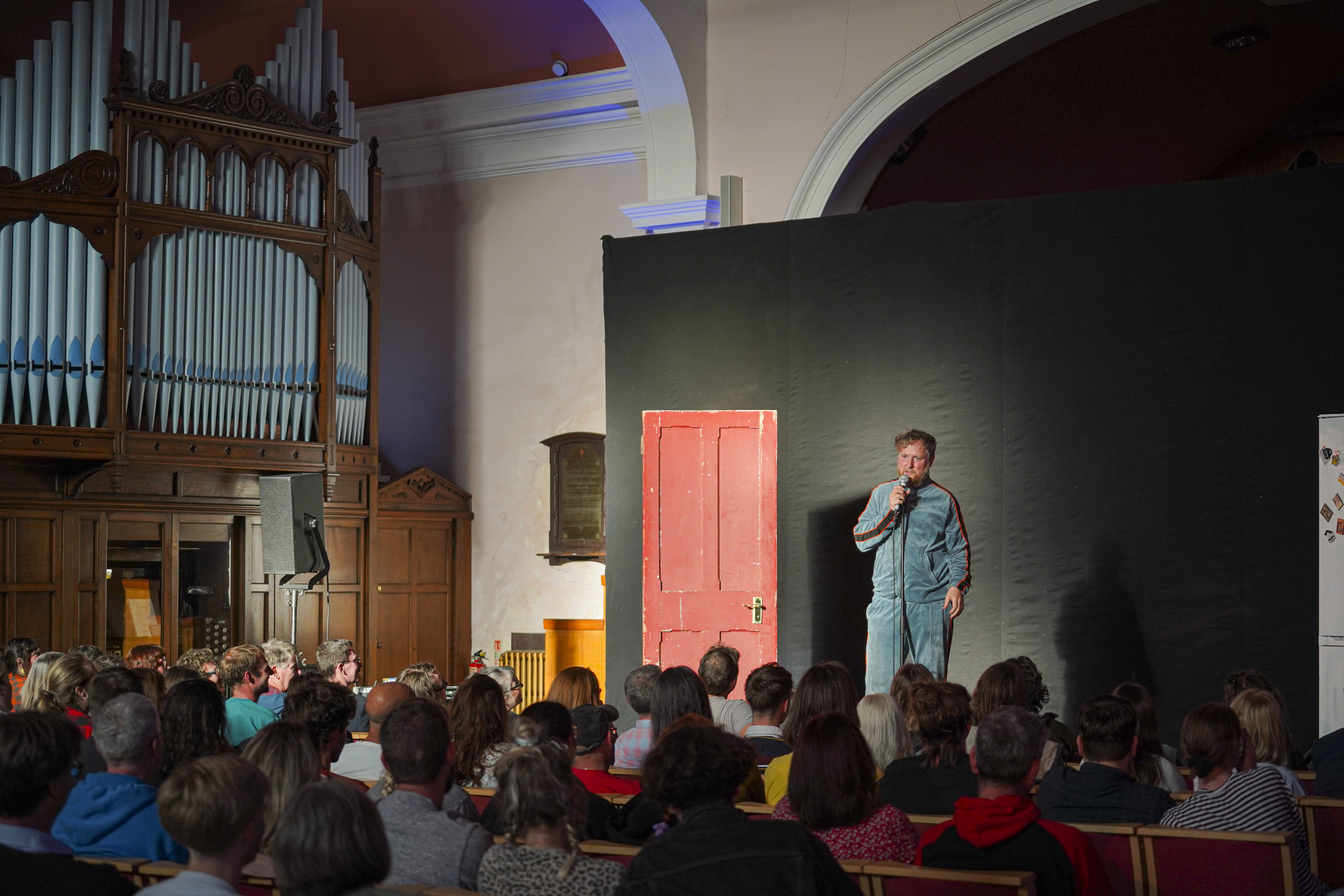
SL: We’re talking about a 20 year stand-up career now, but how has that evolved? What has changed, what has remained constant for you when you are on stage?
Tim Key: It’s always a big moment when you do your first Edinburgh show, your first hour, because it focuses the mind — it is completely petrifying. You're setting yourself up as someone to be judged. It's a big call to decide to book out a room and invite 50 people to sit in front of you. It's quite arrogant stuff! So it has to go well. And it did take me a couple of swings to get it right.
Honestly, it’s such a horrific process — in all of them, there's bits where you feel completely bereft and like it's so bleak because you think you've blown it. I remember in 2011 — that's probably one of my best shows — the walk home after the first night was horrific because it hadn't gone how I’d wanted it to go, I hadn’t worked it out exactly. It just takes work, and you've got to be really passionate about it and really want it to be amazing, and then just try and get as close as you can do that.
But it's difficult. If you feel like it's not quite there, then you can be in quite a desolate place, I think.
I would say there wasn't necessarily one moment where, where it evolved. I feel like I got into a swing of things, where I was making Edinburgh shows every two years, and was just absolutely petrified about the idea of my next one not being as good as my last one. And that sort of drives you forward. I don't know how healthy it is. I guess it makes you think more creatively, and it makes you try and work out why you're doing your next one.
I was a huge fan of Steve Coogan... it's kind of ‘pinch yourself’ stuff, even now.
Tim Key
When I look back on it, particularly back in my 30s, I feel very lucky to have done those shows, and they were very, very fun. But also, I remember them being quite tough to do. You make a lot of sacrifices to do them.
SL: When you're living a 20-years-plus stand-up career and your stand-up persona is purposefully ambiguous in terms of overlap with your real-world self, do you ever get worried that the two will merge?
Tim Key: No — to answer that doesn't lift the curtain, because I don't know exactly what the answer is! When I started, it was like a character, my stage persona. I used to wear a really ill-fitting suit, and I used to drink, and I literally played it drunk. I’d burp and things, and then you gradually flatten out. I wore a suit that fitted once, and a short haircut, I think because I was filming, and a friend said that's really good to do that. She liked the idea that suddenly I was a bit more dignified on stage. So I think I lent into that, I now try to wear a suit that fits. I mean, there's still a certain dishevelment about it, and immediately my shirt gets covered with beer and all of that stuff.
I wouldn't begin to be able to describe what my on stage persona is. Definitely the two have met halfway a little bit. There's more of me on stage, but still a healthy distance, you know, between the two. There's probably moments where I'm talking to someone and I'm on stage, it's quite similar to how I would be talking to someone that I didn't know very well, but it's definitely more of a frisson on stage. You're entertaining, and you're sort of playing, and there's more of a game happening on stage, which would be terrifying if that character was unleashed in real life.
SL: You've worked with lots of comedy greats over the years, whether that's Steve Coogan or the Taskmaster crew. Is there anyone who's had a particular influence on what you do, and maybe someone that you've now had the privilege to work with since?
Tim Key: Oh, definitely — I was a huge fan of Steve Coogan and that whole band of people like from The Day Today, and Knowing Me, Knowing You. It’s a fairly obvious answer, but Steve Coogan is the answer. I mean, it's kind of ‘pinch yourself’ stuff, even now. I was watching him on TV and listening to him on the radio in about 1993— it's insane really that about 15 or 20 years later, I'm sat next to him in a soundproof radio studio, being a part of the latest Alan Partridge incarnation.
I've met Chris Morris more recently, I met Harry Hill more recently, and Frank Skinner — people who I really, really loved and admired and laughed at tonnes. When you think of Harry Hill's TV shows and stuff, and then all of what Frank obviously still does, but like all of the Fantasy Football League and Unplanned and all of that — I'd laugh like a drain to all of that stuff. It sort of normalizes itself after a while. The first person you see when you go to Edinburgh the first time and you see someone across the courtyard. That's the first time where you're like, really, genuinely star struck. And then it's possible to meet someone like Johnny Vegas 15 years ago, and for it not to be quite so weird, because you work in his world. But still, it's interesting, because, you know, I loved Johnny Vegas, and now suddenly you're talking to him on a level. It's kind of a mad thing.
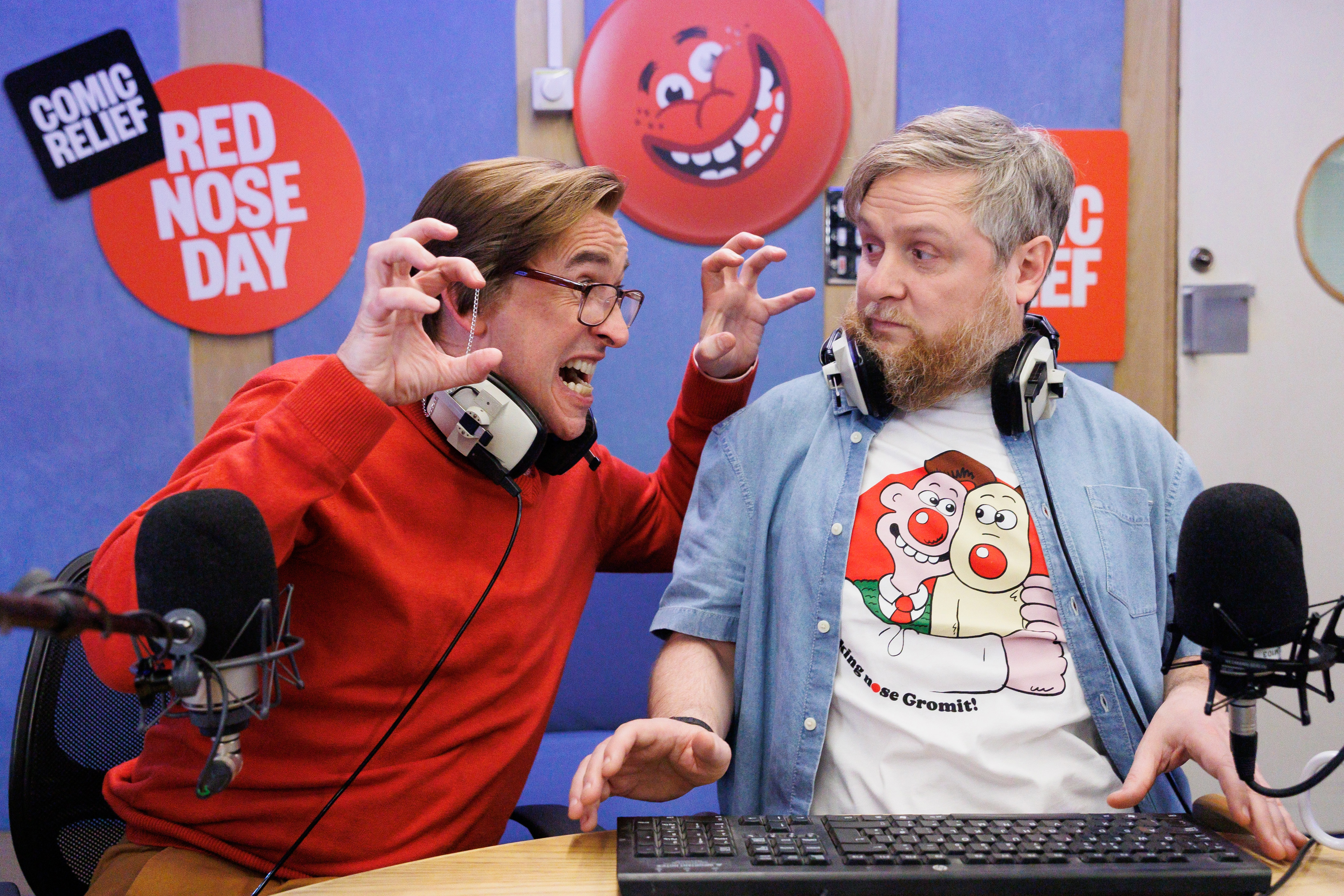
SL: Sidekick Simon is the best thing to happen to the Alan Partridge character since putting him in a motor home. How involved are you in that character?
Tim Key: No, not involved. They've got a very well-oiled machine, which is largely the Gibbons brothers, Neil and Rob who write it, and Steve, who also writes it. I just sort of come in and have these scripts, and they're beautifully economical and funny.
I don't want to ruin Alan Partridge!
Tim Key
When you start shooting it, there's this additional round of rewriting. You see it go through Steve Coogan's, well, Alan Partridge's machinery one last time before it goes in front of the camera. It's all very fascinating. I know what my role is, I am the water carrier! It would be chaos if I went in there saying I've got some decent ideas for Sidekick Simon. Simon is sort of petrified, and just wants everything to be okay, and my actual person, Tim Key, can just slot in with that in the same way really. I don't want to ruin Alan Partridge!
SL: What’s next for Tim Key — not only in terms of projects, but is there anything else you’d like to tackle creatively?
Tim Key: The book is the next thing, and then the film is kind of having a longer life than we’d ever dream of for it. So it's sort of weirdly still going — we’re going to Munich tomorrow to launch it in Germany. Then a new show in Edinburgh. And then I kind of feel like I have this Autumn before me — I want to write my new radio show, and slow down slightly, I think? Maybe go on holiday? And I know that's not necessarily, like, a scoop,
But I'm thinking in quite medium terms with things. I'd like to make another film that would be great. But there's no expectation from me that I'll be shooting a film next year. If me and Tom get to make another one, and it's in three years or five years, that would be just amazing.
I'm very lucky, I have a lot of people I collaborate with, and so I'd like to keep working with Tom, I'd like to keep working on my radio show, and I'd like to keep working with Emily [Juniper, illustrator] on books. After this live show maybe there'll be a moment where I have a bit of space, but I'm not sure — I always think that, and then two months later, I'm waddling up to the Bill Murray to sort of go again. Sometimes when everything's happening, when you're doing live stuff, book stuff, film stuff, you obviously have moments where you're thinking, I do need this to end for a moment. So I feel like a pause is probably my main ambition!
Tim’s anthology of poems L.A. Baby! is available to buy on Friday 4th July via Utterandpress.co.uk/. Tim will be at the Edinburgh International book festival on 15th August as well as at the Edinburgh Festival Fringe from 10th-17th July.

Gerald Lynch is the Editor-in-Chief of Shortlist, keeping careful watch over the site's editorial output and social channels. He's happiest in the front row of a gig for a band you've never heard of, watching 35mm cinema re-runs of classic sci-fi flicks, or propping up a bar with an old fashioned in one hand and a Game Boy in the other.
You must confirm your public display name before commenting
Please logout and then login again, you will then be prompted to enter your display name.
